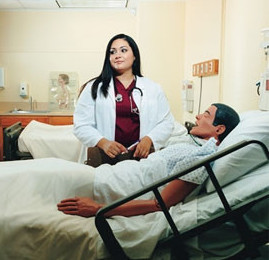Many traveling nurse practitioners have a high deductible health insurance plan (HDHP). This is either because they are getting it from a W2 agency or are self-insuring. If you have a HDHP, then this post is for you.
Having a HDHP allows you to contribute to a Health Savings Account. The maximum contributions for a single person in 2024 are $4150 and $8300 for a family. The money in this account can be invested and used long-term. Do not confuse this with a Flexible Spending Account which is owned by an employer, and needs to be used by the end of the calendar year. An HSA is owned by you and is an investment account.
The HSA is often referred to as a triple tax savings account. This is because money is contributed to the account pre-tax. It grows in the account tax free. And it is withdrawn tax free, as long as it is used for health care costs.
For example, if I wanted to contribute $1000 to my HSA, it would be taken out of my paycheck before income taxes are paid. Or if I am a 1099 worker, I can deduct the contribution on my taxes. Then I would select a fund in my HSA to invest my $1000. Let’s say in that same year I had a dental procedure done. I can withdraw the funds from my HSA to cover the expenses of the dental procedure, without paying taxes. However, this is not recommended.
Instead, it is recommended that you hold on to the receipt of the dental procedure, and allow the money in the HSA to invest and compound long term. Fast forward to retirement age, I want to live off of my HSA. I can withdraw money tax free, as long as I have medical receipts for proof, even from 20 years ago. Let’s say my HSA has now grown to $100,000. Now I would withdraw the $1000 to reimburse me for paying for the dental procedure many years ago, tax free. And at that point I can use the $1000 for my everyday life. I can withdraw more money from that $100,000 growth as long as I have other health care related expenses in the past to support it.
For HSA purposes, healthcare costs can include a variety of expenses such as: medicare premiums, doctor visits, medications, acupuncture, women’s tampons, contact lenses, dental work etc. So, there are many items you can easily reimburse yourself for using over the years.
This is not financial advice, and is a bit more complicated then it appears. Please do your own research and feel free to read this article for a better understanding.


